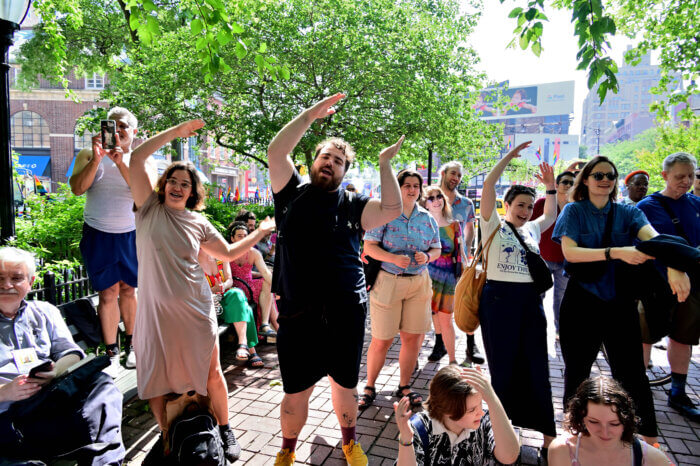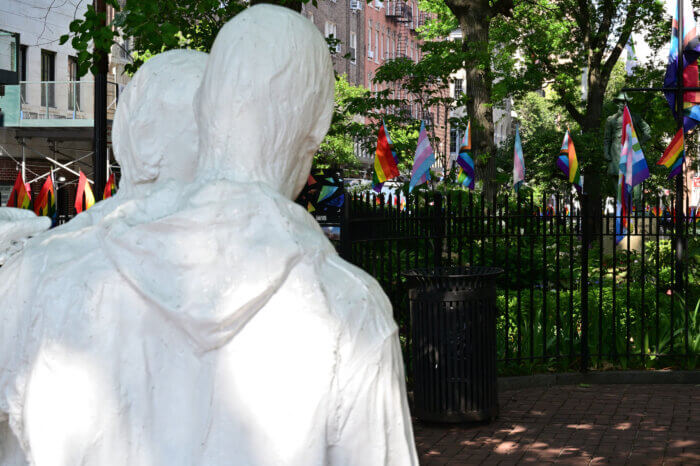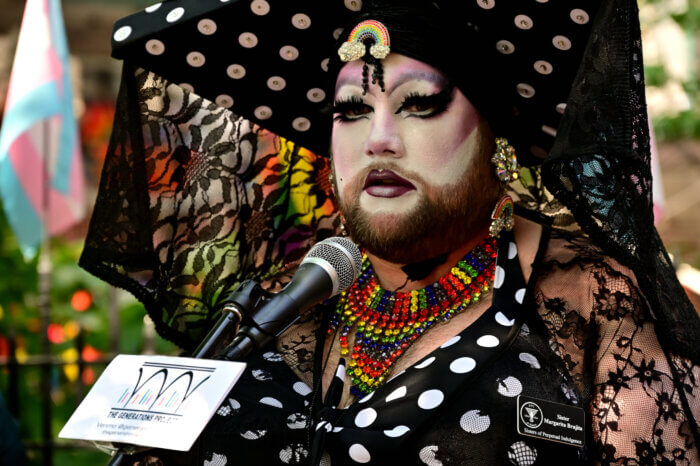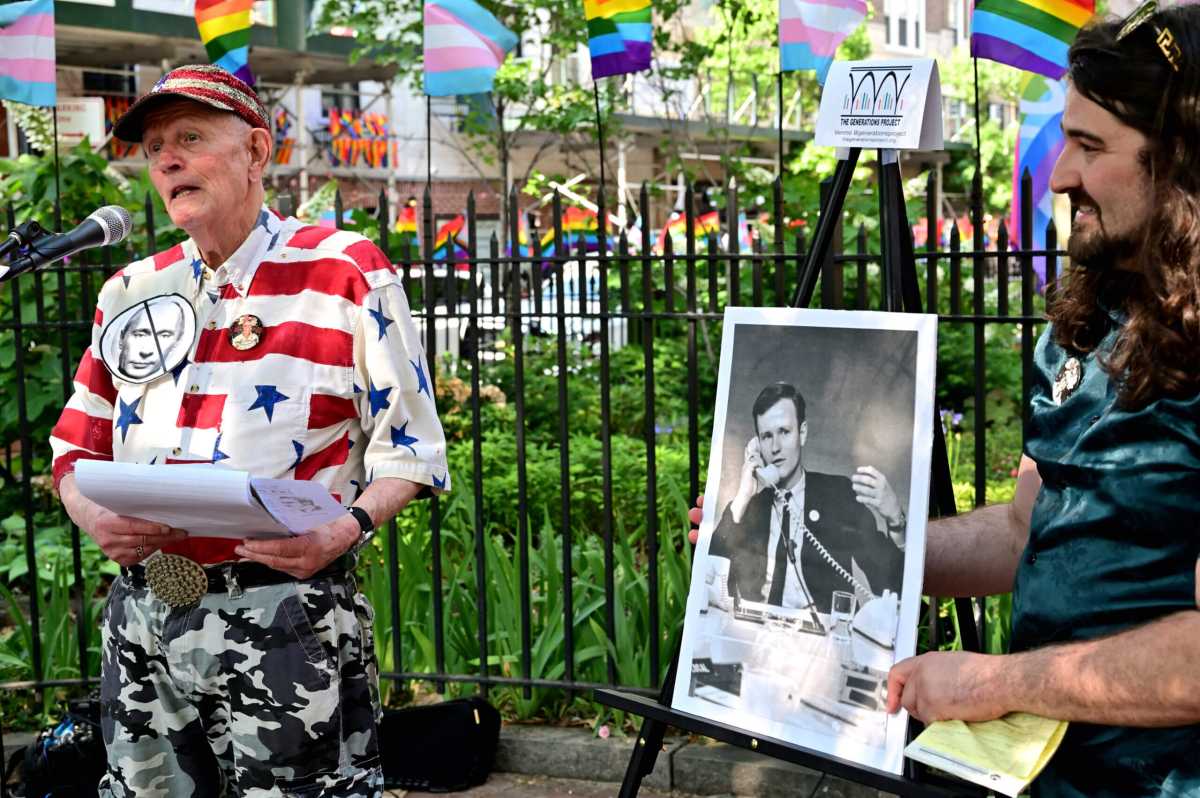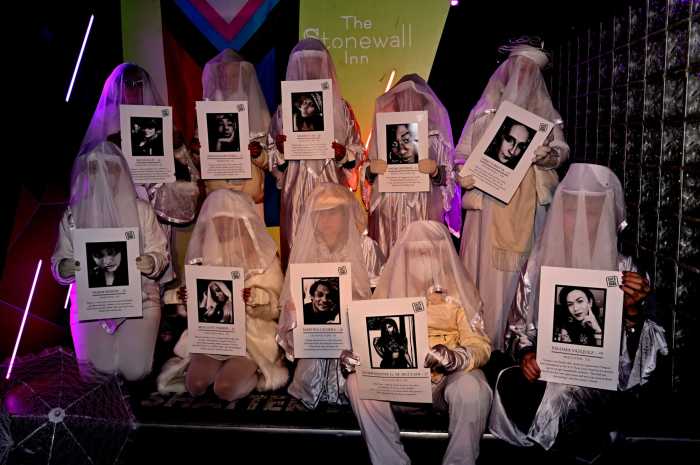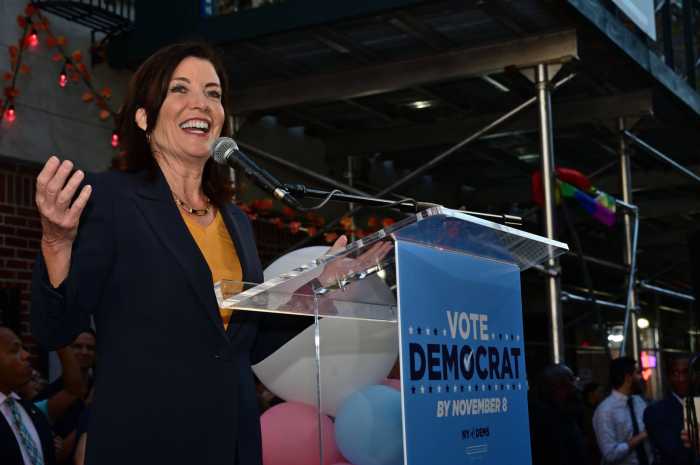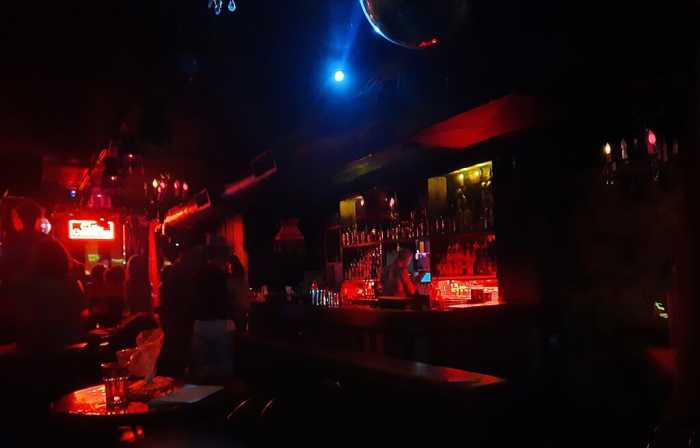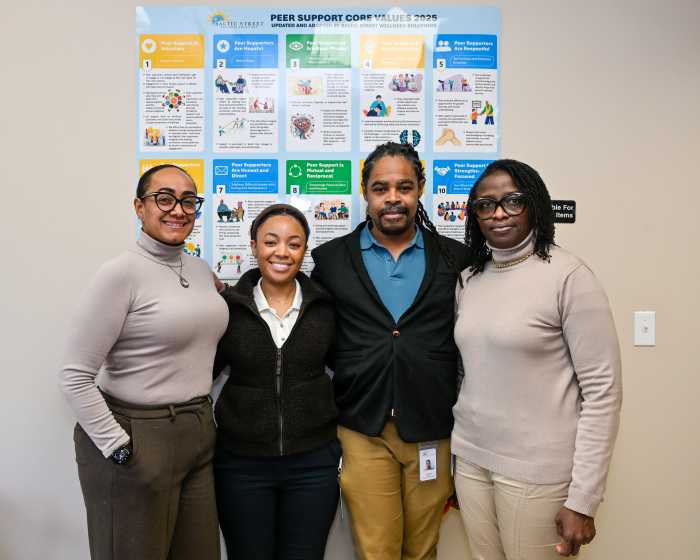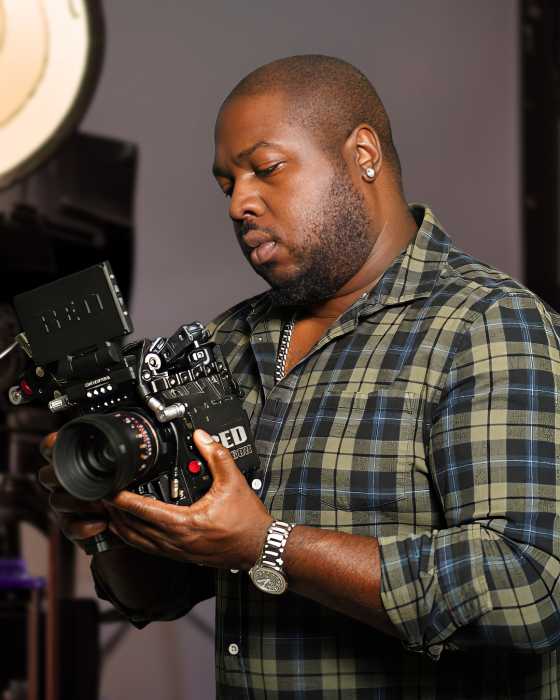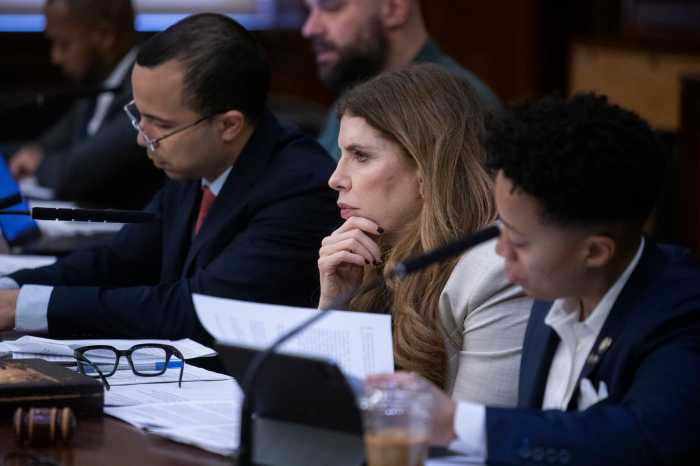Scores of people gathered at Christopher Park in Greenwich Village on June 2 to kick off LGBTQ Pride month by hearing activists share personal stories of tribulation and triumph. Appropriately enough, the leafy, wedge-shaped park, part of the Stonewall National Monument established in 2016, has been a nexus of the LGBTQ rights movement since the legendary riots in June 1969.
The event was organized by The Generations Project, a nonprofit group dedicated to sharing and preserving LGBTQ history across generations by hosting storytelling workshops and public shows. The free event was co-sponsored by Pride at Work, LGBTQ Staff and Faculty at NYU, and NYC Cultural Affairs. Drag personality Castrata hosted the proceedings, singing inspirational songs such as Sarah Bareilles’ “King of Anything.”
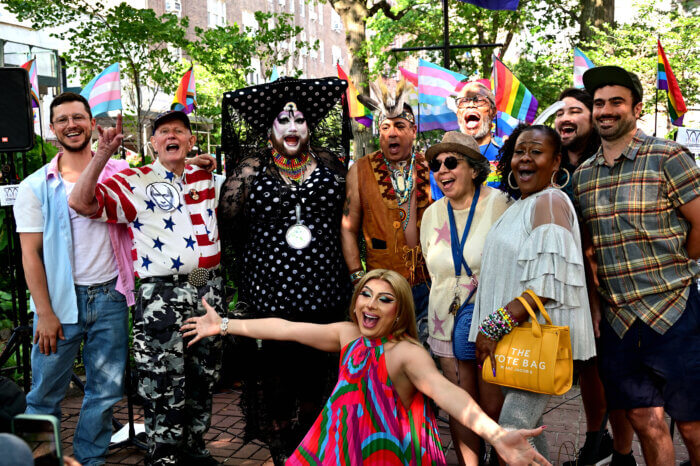
The featured speaker was none other than Randy Wicker, who was not only a witness to the Stonewall uprising but also took part in the legendary “Sip-In” at Julius’ bar around the corner, which challenged the law against serving homosexuals. This political action, staged by the Mattachine Society, took place three years before the Stonewall riots.
“I’m the cutie at the end of the bar,” said the 85-year-old activist of the now-iconic black and white photo of a bartender with an outstretched arm, signaling he would not serve a group of young gay men in jackets and ties.
Wicker cited his many feats in the battle for LGBTQ rights, most achieved before he was 30 years old. In the early 1960s, he was the first openly gay person to publicly demonstrate, and the first to organize a large-scale demonstration, for gay civil rights.
“I was the first homosexual to go on the air and deal with live questions phoned in by viewers, some of which were kind of heavy and hot to handle,” he said. “I became very proficient at this.”
Wicker expressed his gratitude to be chosen as one of the grand marshals (“social justice warrior,” he called himself) in the 2023 Heritage of Pride March. “What this really means is that I have a platform,” he mused. “I guess I should say my supposed 15 minutes of fame has come around again. If you live long enough, maybe that sometimes happens.”
“I am the last spokesman for the pre-Stonewall movement,” he said. “I’m still standing and still fighting. And I’m not finished yet.”
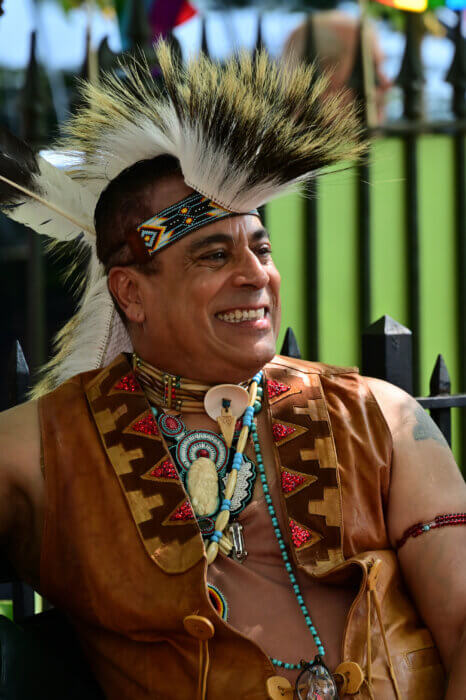
Another storyteller was Felipe Rose, known as the original “Indian” from the 1970s gay-centric disco group, The Village People, who recounted his formative years in the Greenwich Village. He began his career dancing at racy clubs like The Anvil and Studio 54. Part native American (Lakota Sioux), the musician was happy to embrace and honor his heritage.
“I was daring,” he said. “I was 20 and half-naked with a loin cloth, long hair, wearing my tribal gear and just owning my sense of self…And I look back at that young boy and I’m so proud of him.”
The singer concluded his talk by leading the crowd in a rousing rendition of — what else? — “Y.M.C.A.”
Trinidad-born Michelle Lopez spoke of her efforts to help women gain access to lifesaving HIV drugs after she tested positive in 1990. She recalled going to Washington DC, along with others, to address the FDA on behalf of ACT UP.
“Many people have gone off and written books about that era,” she said. “Michelle Lopez wasn’t in there, but Michelle Lopez made a difference…We testified because what they were doing to women was unjust. We were not being allowed to participate in clinical trials. We were not being allowed to have access.”
Rounding out the roster of speakers was Sister Mari, who found community and freedom by embracing the unique order of the Sisters of Perpetual Indulgence, and Reginald Thomas Brown, who dedicated his entire career to fighting institutional homophobia.
